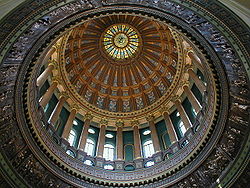The Illinois General Assembly will soon be considering Senate Bill 1169, House Amendment 2, which amends the Illinois Health Care Right of Conscience Act. CCI has issued a statement in opposition to amending this important Act:
STATEMENT IN OPPOSITION TO AMENDING
THE HEALTH CARE RIGHT OF CONSCIENCE ACT
To begin, the Catholic Church encourages all people to be vaccinated against COVID-19. We are conducting public awareness campaigns and urging our own employees to be vaccinated. The Church views receiving the vaccine as an important personal safeguard and an act of charity towards others.
Still, the Illinois Health Care Right of Conscience Act is a vital protection of freedom, and it should not be amended or altered. The law has been a long-standing model for our nation as a bulwark against attempts to coerce people to engage in practices that violate their sincerely held religious or moral beliefs.
We are aware that there are individuals citing the Health Care Right of Conscience Act as legal justification for not being vaccinated against COVID-19, and some are relying on it to object to testing. Although these conscience objections can cause difficulty, this difficulty does not justify amending the law. There is a better approach.
First, we should carefully scrutinize any conscience-based objection to testing for COVID-19. The tests are quick, non-invasive and do not appear to present any religious or moral conflicts. There is nothing about the test itself or the purpose for which it is being administered that could even arguably violate a person’s conscience. There is no valid reason they cannot be required of the unvaccinated, and we will publicly support an interpretation of the law that makes this clear.
Second, the proposed legislation’s allowance “to take any measures or impose any requirements, including, but not limited to, any measures or requirements that involve provision of services by a physician or health care personnel, intended to prevent contraction or transmission of COVID-19 or any pathogens that result in COVID-19 or any of its subsequent iterations” is way too broad and itself ripe for misinterpretation and abuse.
Put simply, the state should not force an individual with sincere conscientious objections to receive a COVID-19 vaccine or other treatments. And if a person claims a conscience objection to the vaccine, there are other, protective steps – including masking, testing or maintaining social distance from others – that the individual will be morally compelled to undertake. These are reasonable accommodations that respect the right of conscience and protect people.
The General Assembly should not amend the Health Care Right of Conscience Act, particularly in so broad a manner.

